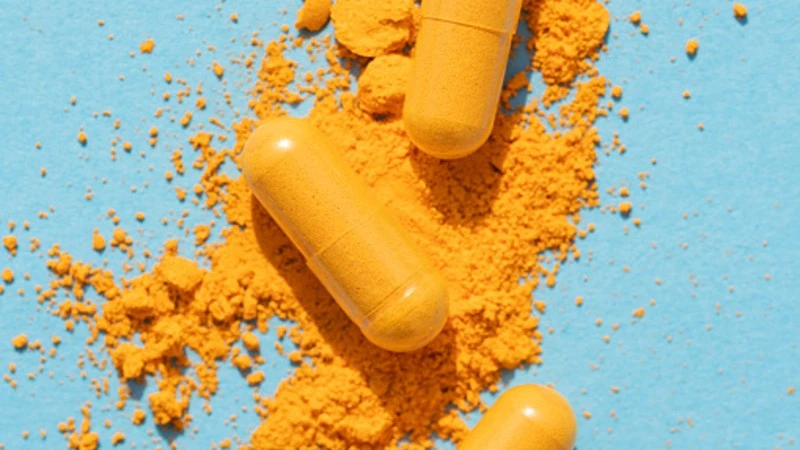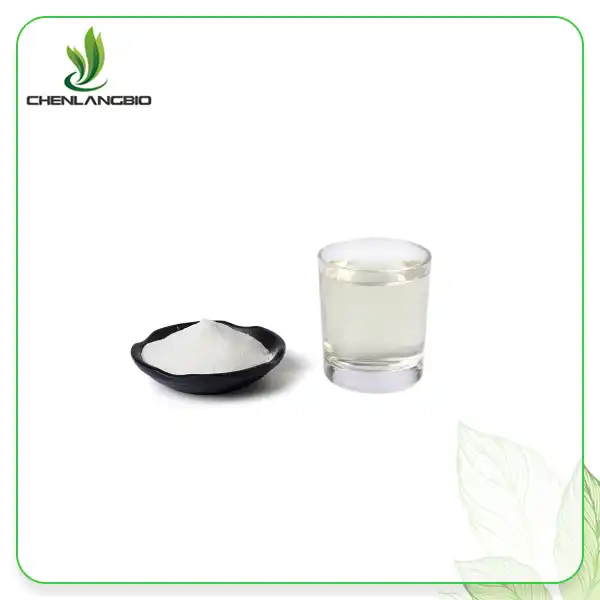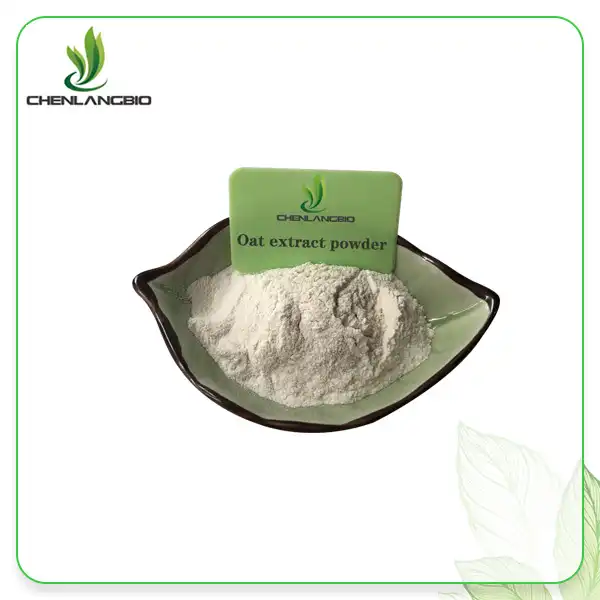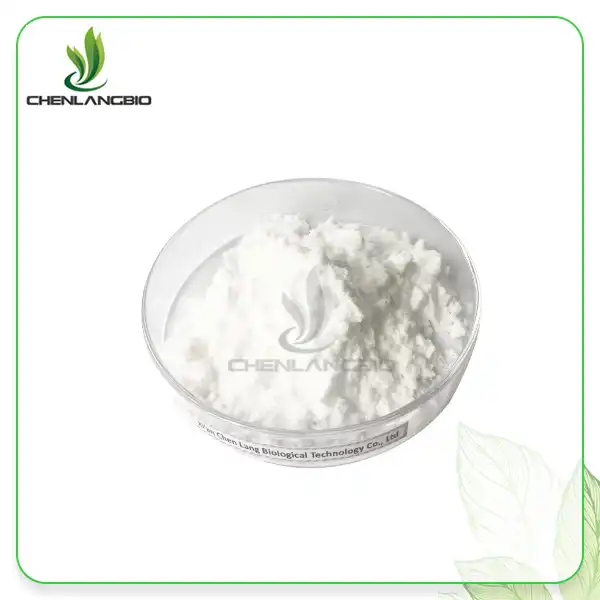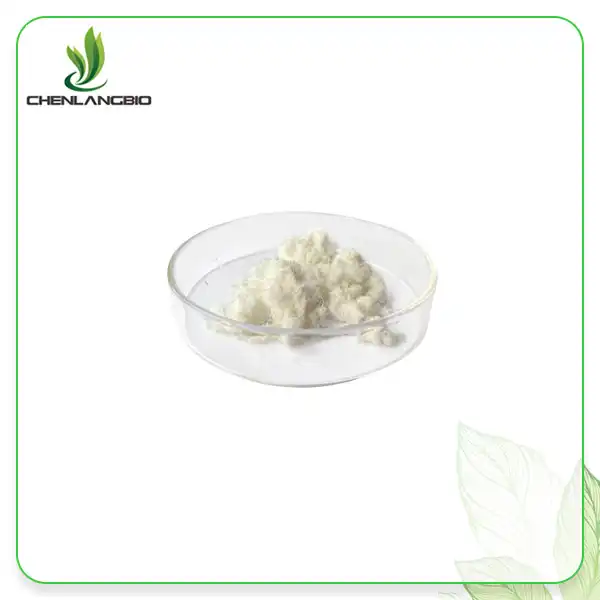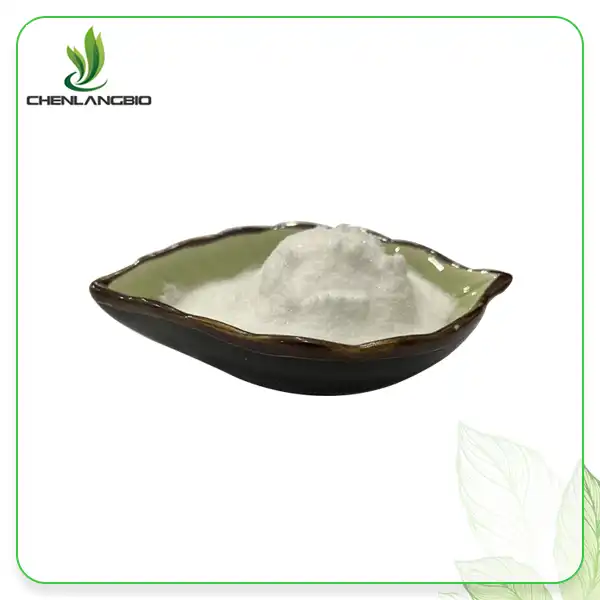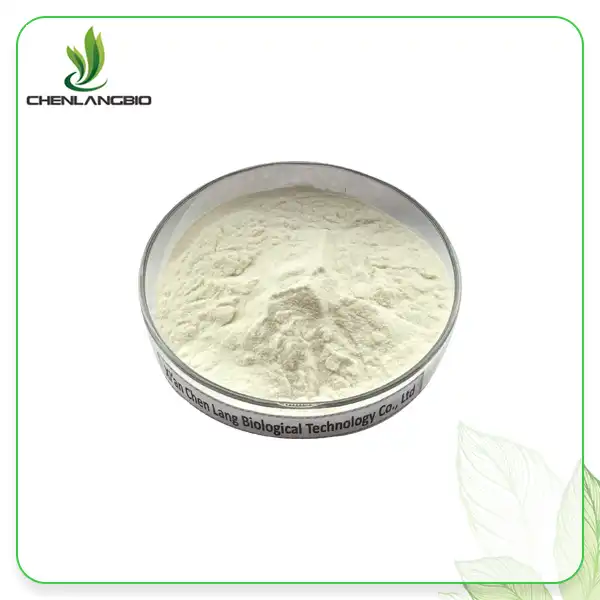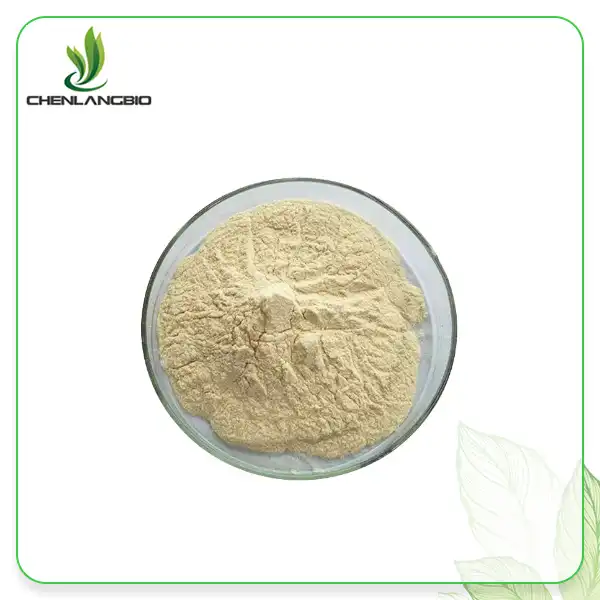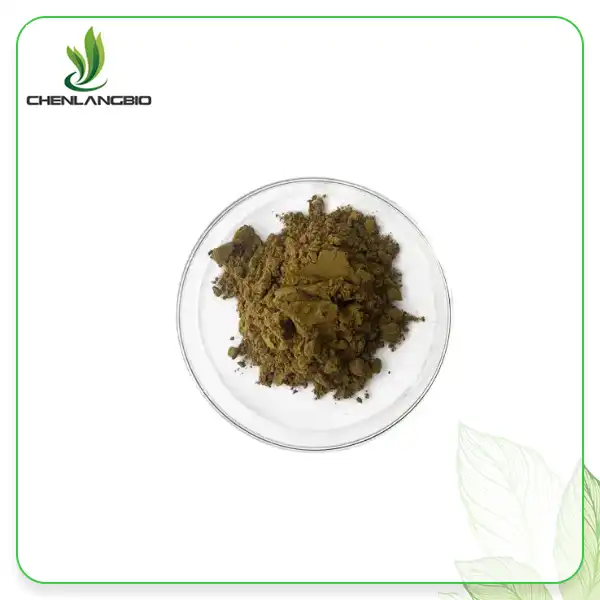What are the Benefits of Liposomal Coenzyme Q10?
2025-06-19 10:03:39
Liposomal coenzyme Q10 represents a revolutionary advancement in nutritional supplement technology, offering enhanced bioavailability and efficacy compared to traditional CoQ10 formulations. This powerful antioxidant, also known as ubiquinone, is naturally present in every cell of the human body and plays a critical role in cellular energy production. When delivered in a liposomal form, Coenzyme Q10's absorption is significantly improved as the liposomal encapsulation protects it from degradation in the digestive system and facilitates direct cellular uptake. This innovative delivery system allows for more efficient transport of this essential nutrient to tissues and organs where it's most needed, maximizing its numerous health benefits, from supporting cardiovascular function to enhancing energy levels and promoting overall cellular health.
The Science Behind Liposomal Coenzyme Q10 Delivery
Enhanced Bioavailability Through Liposomal Technology
Liposomal Coenzyme Q10 represents a significant advancement in nutrient delivery systems. Traditional CoQ10 supplements often suffer from poor absorption due to their fat-soluble nature and relatively large molecular size. The liposomal delivery system ingeniously addresses this limitation by encapsulating CoQ10 molecules within phospholipid bilayers—structures similar to cell membranes. These phospholipid shells protect the enclosed Coenzyme Q10 from degradation by digestive enzymes and stomach acid, allowing a substantially higher percentage of the active compound to reach the bloodstream intact. Research has demonstrated that liposomal formulations can increase CoQ10 bioavailability by up to 3-8 times compared to conventional supplements. This enhanced absorption efficiency means that lower doses of Liposomal Coenzyme Q10 can achieve therapeutic effects comparable to much higher doses of standard formulations, making it both more effective and economical. The phospholipid component of liposomes, typically derived from sunflower or soy lecithin, also contributes additional health benefits, supporting cellular membrane integrity throughout the body.
Cellular Energy Production Mechanisms
Coenzyme Q10's fundamental role in cellular energy production makes it an indispensable element of human life. As a crucial component of the electron transport chain within mitochondria—the powerhouses of our cells—liposomal coenzyme Q10 facilitates the production of adenosine triphosphate (ATP), the primary energy currency of cells. This process is particularly vital in tissues with high energy demands, such as the heart, liver, and kidneys. The enhanced delivery mechanism of liposomal technology ensures more efficient transport of CoQ10 directly to mitochondrial membranes where it's most needed. By optimizing this energy production pathway, Liposomal Coenzyme Q10 helps maintain cellular vitality and function, especially in organs requiring continuous energy output. This energy-enhancing capability makes it particularly beneficial for individuals experiencing fatigue, those with mitochondrial disorders, athletes seeking improved performance, and aging populations who naturally experience declining CoQ10 levels. The ability of Liposomal Coenzyme Q10 to support mitochondrial function represents a fundamental aspect of its wide-ranging health benefits, ultimately contributing to improved overall energy levels and enhanced vitality.
Antioxidant Defense System Enhancement
Liposomal Coenzyme Q10 serves as a powerful component in the body's antioxidant defense network, offering protection against oxidative stress at both cellular and subcellular levels. Unlike many antioxidants that work only in specific cellular compartments, CoQ10 functions effectively in both lipid and aqueous environments, providing comprehensive protection throughout the body. The liposomal delivery system significantly enhances this protective capability by ensuring higher concentrations of active CoQ10 reach vulnerable tissues. As an antioxidant, Liposomal Coenzyme Q10 neutralizes harmful free radicals that can damage cellular components including proteins, lipids, and DNA—damage that contributes to aging and various chronic diseases. Additionally, CoQ10 has the remarkable ability to regenerate other antioxidants such as vitamin E, creating a synergistic effect that amplifies overall antioxidant protection. Research indicates that Liposomal Coenzyme Q10 supplementation can reduce markers of oxidative stress throughout the body, particularly in cardiovascular tissues where its concentration is naturally highest. This potent antioxidant activity helps maintain cellular integrity, supports healthy aging processes, and contributes to disease prevention by addressing one of the fundamental mechanisms of cellular damage and dysfunction.
Health Benefits of Liposomal Coenzyme Q10
Cardiovascular Health Improvements
Liposomal Coenzyme Q10 offers remarkable benefits for cardiovascular wellness, earning its reputation as the "protector of the heart." The heart, with its continuous energy demands, contains the highest concentration of CoQ10 in the body, underscoring its critical importance to cardiac function. Clinical research has demonstrated that Liposomal Coenzyme Q10 supplementation can significantly improve several aspects of cardiovascular health. It helps maintain healthy blood pressure levels by enhancing endothelial function and promoting vasodilation, allowing blood vessels to relax and dilate more efficiently. For individuals with heart failure, studies indicate that CoQ10 can improve ejection fraction—a measure of how well the heart pumps blood—and reduce symptoms like fatigue and dyspnea. The liposomal delivery system ensures optimal absorption, allowing therapeutic levels of CoQ10 to reach cardiac tissues. Additionally, Liposomal Coenzyme Q10 supports healthy cholesterol metabolism by inhibiting LDL oxidation, a critical step in atherosclerosis development. Its cardioprotective effects extend to minimizing ischemia-reperfusion injury, potentially reducing damage during cardiac events or surgeries. These comprehensive cardiovascular benefits make Liposomal Coenzyme Q10 an invaluable supplement for maintaining heart health, especially for those with existing cardiac conditions or risk factors.
Neurological Function Support
Liposomal coenzyme Q10 demonstrates significant neuroprotective properties that support brain health and cognitive function throughout life. The brain, as one of the most metabolically active organs, requires substantial energy production—a process heavily dependent on adequate CoQ10 levels. The enhanced bioavailability of Liposomal Coenzyme Q10 ensures efficient delivery across the blood-brain barrier, providing direct support to neuronal mitochondria. Research indicates that CoQ10 supplementation may help protect against neurodegenerative conditions by preserving mitochondrial function and reducing oxidative damage in brain tissues. Studies have shown promising results regarding CoQ10's potential in conditions like Parkinson's disease, where it may slow disease progression by supporting the function of affected neurons. Additionally, Liposomal Coenzyme Q10 has demonstrated efficacy in reducing the frequency and severity of migraines, possibly by enhancing energy metabolism and reducing inflammatory processes within cerebral blood vessels. Cognitive benefits extend to supporting memory and mental clarity, particularly in aging populations experiencing declining natural CoQ10 levels. The neuroprotective mechanisms of Liposomal Coenzyme Q10 include reducing glutamate-induced toxicity, supporting neural stem cell function, and enhancing brain-derived neurotrophic factor (BDNF) levels—all contributing to comprehensive support for neurological health and cognitive function.
Anti-Aging and Skin Health Enhancement
Liposomal Coenzyme Q10 offers remarkable anti-aging benefits, both internally and externally, making it a powerful ally in the quest for longevity and youthful appearance. As a potent antioxidant, it combats the oxidative stress that accelerates cellular aging processes throughout the body. The liposomal delivery system ensures optimal absorption and distribution of CoQ10 to skin tissues, where its benefits become visibly apparent. Research demonstrates that Liposomal Coenzyme Q10 helps reduce the appearance of fine lines and wrinkles by protecting skin cells from UV damage and environmental toxins that deplete natural CoQ10 levels in skin tissues. It supports collagen and elastin production—structural proteins essential for maintaining skin elasticity and firmness. Beyond surface-level improvements, Liposomal Coenzyme Q10 works at the cellular level to enhance mitochondrial function in skin cells, promoting more efficient energy production that supports natural repair and regeneration processes. This results in improved skin texture, enhanced hydration, and a more radiant complexion. Additionally, studies show CoQ10 can reduce inflammation in skin tissue, helping to calm irritation and redness while supporting overall skin health. When incorporated into both topical skincare regimens and internal supplementation protocols, Liposomal Coenzyme Q10 provides comprehensive support for maintaining youthful skin appearance and function, addressing aging from both inside and out.
Practical Applications of Liposomal Coenzyme Q10
Optimal Dosage and Administration Guidelines
Determining the optimal dosage of Liposomal Coenzyme Q10 requires consideration of individual health needs, age, and specific health conditions. The enhanced bioavailability of liposomal formulations generally allows for lower effective dosages compared to conventional CoQ10 supplements. For general health maintenance and antioxidant support, clinical studies suggest 100-200 mg of Liposomal Coenzyme Q10 daily is sufficient for most adults. Those with specific cardiovascular concerns may benefit from higher dosages ranging from 200-300 mg daily, with some studies demonstrating positive outcomes with dosages up to 600 mg for heart failure patients. For neurological support, including migraine prevention and cognitive enhancement, 300 mg daily has shown efficacy in clinical trials. The liposomal delivery system significantly improves absorption, making the timing of administration more flexible than traditional CoQ10 supplements, though taking it with meals containing some healthy fats can further enhance absorption. Divided dosages (morning and evening) may provide more consistent blood levels throughout the day. Long-term safety studies indicate that Liposomal Coenzyme Q10 is well-tolerated even at higher dosages, with minimal side effects reported. As with any supplement, it's advisable to start with lower dosages and gradually increase as needed while monitoring for individual response. For those on statin medications, which can deplete natural CoQ10 levels, supplementation becomes particularly important, and healthcare provider guidance is recommended to determine optimal dosing.
Complementary Nutrients for Enhanced Efficacy
Combining liposomal coenzyme Q10 with specific complementary nutrients can significantly amplify its therapeutic benefits through synergistic interactions. Vitamin E works cooperatively with CoQ10 in antioxidant defense systems, with each capable of regenerating the other from oxidized states, creating a powerful protective cycle. Incorporating omega-3 fatty acids alongside Liposomal Coenzyme Q10 enhances membrane fluidity and improves CoQ10's integration into cellular structures, particularly beneficial for cardiovascular and neurological health. B-vitamins, especially B6, B12, and folate, support the metabolic pathways that utilize CoQ10, optimizing energy production and methylation processes throughout the body. Selenium serves as an essential cofactor for several antioxidant enzymes that work alongside CoQ10 in protecting cells from oxidative damage. Magnesium, critical for over 300 enzymatic reactions, complements CoQ10's energy production role by facilitating ATP synthesis and utilization. For individuals seeking enhanced mitochondrial support, combining Liposomal Coenzyme Q10 with PQQ (pyrroloquinoline quinone) and L-carnitine creates a comprehensive approach to cellular energy optimization. Alpha-lipoic acid, another powerful antioxidant capable of functioning in both water and fat-soluble environments, works synergistically with CoQ10 to provide comprehensive cellular protection. These strategic nutrient combinations maximize the therapeutic potential of Liposomal Coenzyme Q10, creating integrated support for energy production, antioxidant defense, and overall cellular function.
Target Populations and Specific Applications
Liposomal Coenzyme Q10 offers targeted benefits for diverse population groups with specific health considerations. Aging individuals represent a primary beneficiary group, as natural CoQ10 production declines significantly after age 40, making supplementation increasingly valuable for maintaining energy levels and supporting healthy aging processes. Athletes and fitness enthusiasts can leverage Liposomal Coenzyme Q10 to enhance exercise performance, reduce recovery time, and mitigate exercise-induced oxidative stress, with studies showing improved endurance and reduced muscle fatigue. Individuals taking statin medications for cholesterol management experience CoQ10 depletion as a side effect, making supplementation particularly important to counteract symptoms like muscle pain and fatigue commonly associated with these drugs. Cardiovascular patients with conditions like hypertension, heart failure, or history of myocardial infarction may experience significant benefits from Liposomal Coenzyme Q10's cardioprotective properties. Those suffering from migraines can benefit from CoQ10's proven efficacy in reducing headache frequency and severity, with liposomal delivery enhancing these effects. Patients with gum disease find that Liposomal Coenzyme Q10 supports periodontal health by reducing inflammation and promoting tissue healing. People with diabetes may experience improved glycemic control and reduced oxidative stress markers with regular supplementation. Those with neurological concerns, including early-stage neurodegenerative conditions, can benefit from CoQ10's neuroprotective properties. These diverse applications demonstrate the versatility of Liposomal Coenzyme Q10 as a therapeutic agent across various health conditions and population groups.
Conclusion
Liposomal coenzyme Q10 stands as a revolutionary advancement in nutritional supplementation, offering enhanced bioavailability and comprehensive health benefits. From cardiovascular support to anti-aging properties, this powerful antioxidant provides cellular protection and energy production essential for optimal health. Experience the superior efficacy of premium Liposomal Coenzyme Q10 from Xi An Chen Lang Bio Tech Co., Ltd, where cutting-edge liposomal technology meets pharmaceutical-grade production standards. Ready to transform your health? Contact our expert team today at admin@chenlangbio.com and discover the difference that quality makes.
References
1. Crane FL. Biochemical functions of coenzyme Q10. Journal of the American College of Nutrition. 2001;20(6):591-598.
2. Langsjoen PH, Langsjoen AM. Overview of the use of CoQ10 in cardiovascular disease. Biofactors. 1999;9(2-4):273-284.
3. Bhagavan HN, Chopra RK. Coenzyme Q10: Absorption, tissue uptake, metabolism and pharmacokinetics. Free Radical Research. 2006;40(5):445-453.
4. Sarter B. Coenzyme Q10 and cardiovascular disease: A review. Journal of Cardiovascular Nursing. 2002;16(4):9-20.
5. Rosenfeldt FL, Haas SJ, Krum H, et al. Coenzyme Q10 in the treatment of hypertension: A meta-analysis of the clinical trials. Journal of Human Hypertension. 2007;21(4):297-306.
6. Zhang Y, Liu J, Chen XQ, Chen CY. Ubiquinol is superior to ubiquinone to enhance Coenzyme Q10 status in older men. Food & Function. 2018;9(11):5653-5659.
Send Inquiry
Related Industry Knowledge
- What are the Main Benefits of Ascorbyl Tetraisopalmitate?
- Turkesterone Powder vs Ecdysterone: Which is Better?
- Can Women Use Turkesterone?
- How Does Sodium Methylesculetin Acetate Function in Oral Care Products?
- Why Kola Nut Extract Powder is Trending in 2024?
- How Effective is Glabridin Powder for Hyperpigmentation
- How to Choose the Best Pure Pomegranate Powder
- Red Wine Extract Powder for Skin Health and Beauty
- What is Shilajit Extract Powder
- What is Curcumin Turmeric Extract Powder Used to Treat

